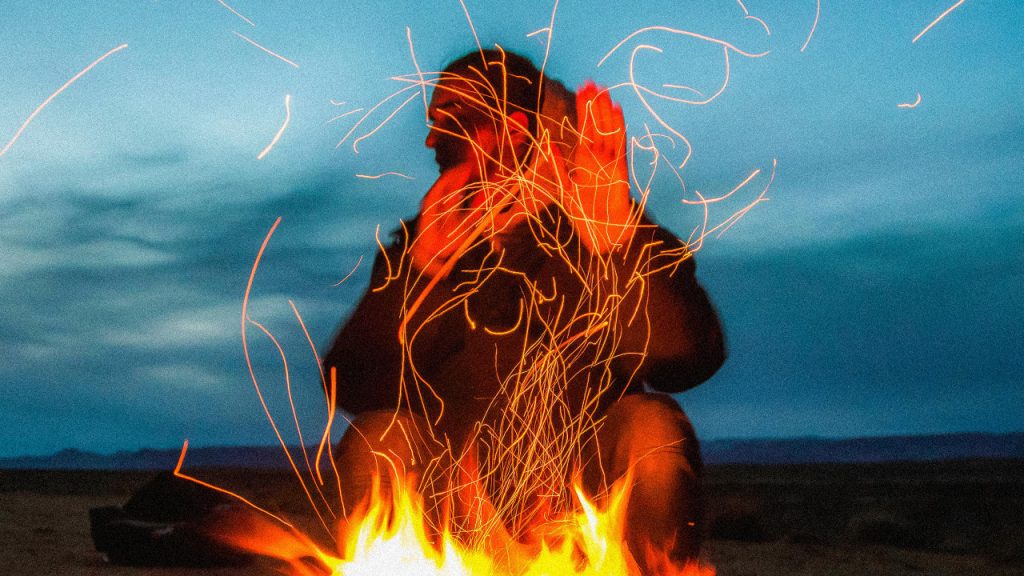
Learning to survive in the wild is not just a radical idea preppers are undertaking as a cautionary measure for the future. The global survival training market is a nearly $3 billion industry expected to more than double in the next five years. More professionals, executives, and teams are bravely venturing into unknown terrain with survival courses, retreats, and offsite field trips, exploring themselves in new and adventurous ways. Imagine your colleague in IT—or if you are that IT person—peeling off a decade-long work identity only to become a hero of epic proportions, saving the day in a survival simulation without using any technology.
More people undertake survival training to challenge themselves, develop skills, and grow their capacity for discomfort. Why? Some might say for adventure, others out of fear of an apocalypse or to hop on the latest trend. However, there does appear to be something much more systemic to this bandwagon, a need to redefine survival, and one answer can be found within the human body.
Our bodies are constantly seeking homeostasis or returning to a state of health. Now, the global body is out of balance, and our intellects are at the helm, driving a talking-head culture of egoic video-game-like fantasy into one natural disaster after the next. Too much?
It is, and the pendulum of health has swung into desperate realms. There’s a rebellion against the soulless agreement that all technology is “a good thing,” yet still click “Agree” to the ongoing pages of terms and conditions just to keep phones updated. Technology, as beneficial as it can be, also harms our humanity if we don’t work diligently to “advance” our relationship with nature. A battle cry resounds from those heading into the wilderness learning to “survive,” but what are we surviving from?
Working from stress to skill-building
A few months ago, I ventured out on a five-day solo primitive wilderness survival training course to test my capacity and train for a future quest. I had just experienced a very challenging move across the country, was navigating more than average stress levels with work, and was pretty anxious about sleeping in subfreezing temperatures. After surviving the first night of sleeping outside at 20 degrees Fahrenheit, I realized I could do this and was invigorated to continue. Learning hard skills such as building a fire and shelter kept me alive and enlivened me from within. Something clicked.
There is nothing like resting your back on a cave wall, snuggled in a sleeping bag, and watching the stars pass by while flames of warmth dance and cast shadows of new possibilities. Is this an alternate reality?
Instead of resting on the earth’s floor, you may be reading this on your mobile device or at your work desk. The blue light pours over these words, straining your vision. Here’s an alternate reality: What if the tasks on your current to-do list transformed into the “survival” challenges that pushed you outside your comfort zone? What if sending emails and planning for the future became something you only did occasionally as a way to tap in? After a few days immersed in the wild, you might redefine what survival means to you.
Finding power in simplicity
The wilderness is howling, and while it may not seem like your typical invitation, it calls to everyone. Why is that? Taking a cold plunge in the morning or ending your shower with a decent freeze is a good step, but there is no substitute for what lives in the mountains, canyons, and sacred lands beyond the walls of your apartment or city limits. A hot sauna can relieve stress and detox your pores, but what about your soul? Learning to build a fire is a ritual you will carry with you forever. It can be powerful to return to the simplicity of our basic needs and experience life outside the confines of your usual routines—commute, work, gym, home, and repeat.
Translating survival experience to ordinary days
How can time spent in survival mode improve your life at home and work?
Healthy challenges: Overcoming cold, hunger, and fatigue offers a distinct natural stress, different from how you feel when focusing on paying your mortgage or meeting deadlines. Facing challenges that nourish the soul and then sitting next to a warm fire you made can transform into a deep satisfaction.
Developing skills: To thrive in the wilderness, you need hard skills like building a fire, setting up shelter, and finding a water source, as well as soft skills such as enhanced communication, self-reliance, and resilience. These skills boost confidence and create new habits that ripple into all other areas of your life.
Gratitude: One of the greatest gifts is returning home with a renewed sense of gratitude, thankful for your bed, job, warmth, clothes, food, and the people you love. Perspective is King, and from the POV imprint of the wild, you can maintain it as a way of being. You now know the wilderness is out there, and you can return for its resources and nourishment!
Vigor: Reinvigoration occurs when you are pulled out of the stagnant routines of daily life. It is empowering and vitalizing when you accomplish a feat you didn’t think you were capable of; the mundane of life doesn’t bother you as much as it did before, and your energy shifts.
Joy: You can enjoy the cold as you dance near the river by a fire! Or play games of discovery and enjoy it with enthusiasm. It doesn’t have to be super serious all the time. When was the last time you felt the freedom to explore?
Until you leap, book the flight, and head into the wilderness, try these suggestions to get you started:
- Go outside. Feel your bare feet on the earth, walk, or swim in a lake, river, or ocean, no matter the temperature.
- Start listening to podcasts about survival in the wild.
- Talk to a wilderness guide. Discuss what they think about a person like yourself heading into the wild. What would it take? How would you need to prepare?
- Book a course. Go with a group if being alone is too much of a stretch and you’d like to be with like minds or go with just a guide if you are aching for some “you” time away from people and the world.
- Bring this to HR. Suggest a team-building retreat and call an expert to lead you and your colleagues into a refreshed state of mind and being. You are the hero!
We all know that taking a beat from the daily grind enlivens the spirit. Taking it a step further and immersing into the majesty of nature initiates an entirely new relationship with self, others, and the world.
Are you ready to meet yourself as you’ve never known yourself to be and truly thrive? Liberated, connected, and inspired, you, too, could advocate for others to return to their true nature from the wild enthusiasm within you. And maybe, just maybe, you’ll do exactly that.






